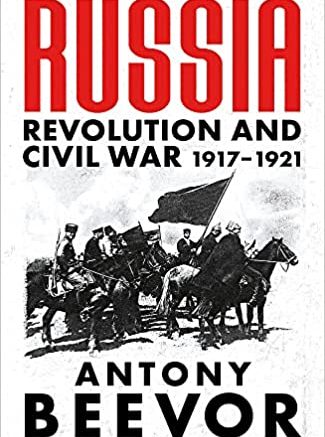This door-stopper of a book is, first of all, a work of military history. Beevor doesn’t have much to say about the social, political or economic history of that tumultuous period in Russia. But he has a lot to say about the various generals, the forces they commanded, their tactics and strategy. His greatest interest seems to be in the White generals, and we get to know Admiral Kolchak, General Denikin and Baron Wrangel as each individually makes their bid to overthrow the Bolsheviks, but then suffers defeat at the hands of the Red Army, commanded by Trotsky. I think that there is far too much detail about all this, which is why I would advise only those interested in military history to pick up this book. The other thing the book is filled with, and I caution readers with a weak stomach, is horror. The stories of torture, sadism and brutality are graphic and shocking beyond belief. As Beevor makes clear, both sides in the Russian Civil War committed terrible crimes, though as he summarises at the very end, the Bolsheviks may have been somewhat worse. Even things like the notorious pogroms conducted against defenceless Jewish communities were committed by both sides, and not only the openly anti-Semitic Whites. Beevor sees some of the inspiration for Nazi atrocities during the Second World War in the brutality committed during this one, such as the genocide of whole peoples. I think that may be a bit of a stretch — the Germans didn’t need inspiration from the Russians for the horrors they inflicted on the world. One minor gripe about the book concerns Georgia. While Beevor correctly points out that Georgia, then an independent country under Social Democratic rule, stayed neutral in the war, he ends the book before Georgia is invaded by the Red Army and forced against its will into the Soviet Union.
Review: Russia: Revolution and Civil War, 1917-1921, by Antony Beevor
